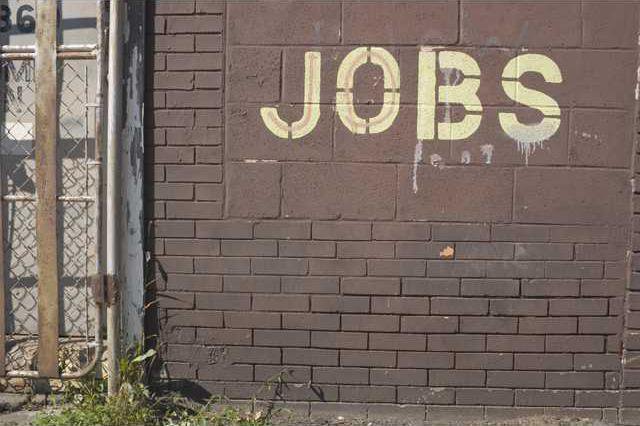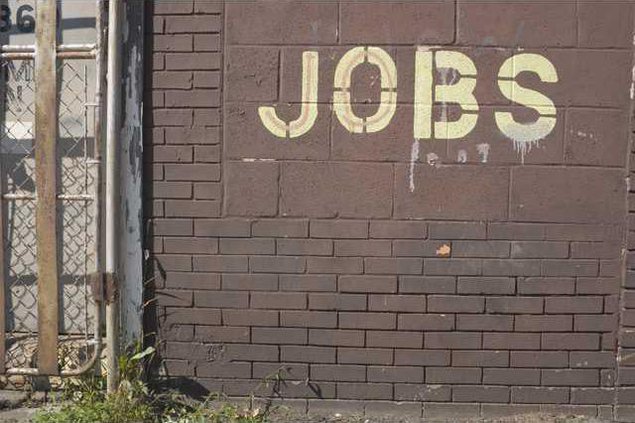The efficiency of the American welfare state is no minor issue of debate. Each year, the president and Congress negotiate the best ways to distribute funds in the federal budget, and each year there are those who call for major reforms to the social safety net, from both the left and the right. Some, typically from the conservatives in Congress, call for reduced spending on welfare initiatives, while others, typically the liberals, call for increases and expansions.
But are there any policies that meet in the middle? Replacing current welfare programs with a guaranteed basic income for all citizens is one idea that pops up now and again, precisely because it has supporters on both sides.
According to Vox's Dylan Matthews, who highlighted basic income proposals on May 1 as part of International Worker's Day, the idea of providing a minimum sum of money to all citizens could work to not only minimize poverty, but close or weaken the widening gap of income inequality.
So what, exactly, is a minimum income? According to the Basic Income Earth Network, "A basic income is an income unconditionally granted to all on an individual basis, without means test or work requirement." BIEN explains that basic income differs from more common welfare programs because it pays the individual, not the household, and it is unconditional.
According to Matthews, fears that providing a basic income would eliminate incentives to work and throw the budget out of whack may be reasonable, but there is evidence (through some small-scale experiments) that it would have little noticeable impact on these factors.
"The scale is likely to be modest," he wrote, "and the form that reduction in work effort takes could very well be good for the economy in the long run."
One of the strangest aspects of basic income proposals, which Matthews handles at length, is that there is substantial support for it from both ideological extremes.
On the conservative side, for example, libertarian political philosopher Matt Zwolinski joined the likes of economists Milton Friedman and John Kenneth Galbraith when he argued last year that such a policy could potentially simplify the current federal bureaucracy, lower costs and provide greater protections to individual privacy.
"In Libertarian Utopia, we might not have any welfare state all, no matter how limited or efficient," he argued. But, he continued, "the question is not whether a GBI is a perfectly libertarian policy in every way, but whether it is more libertarian than the other realistically available policy alternatives."
On the liberal side, many have noted that Martin Luther King Jr. advocated for similar measures, as did philosopher Bertrand Russell. "In a GBI (guaranteed basic income) world, an employer has to make work somehow appealing enough to get employees even though everyone's guaranteed a basic minimum whether they work or not," Matthew Yglesias wrote in Slate in 2013 (Yglesias is now an editor at Vox).
"But that 'appealing' factor could be high wages, could be valuable skills and training, could just be a pleasant work atmosphere," Yglesias added. "Or (it) could be some combination of the three."
Though there have been proposals in the past for some form of a basic income, most notably from the Nixon administration, most pundits, including Matthews, aren't optimistic that such a major change to the American welfare system could come any time soon. Still, they argue, it's at least worth a look.
But are there any policies that meet in the middle? Replacing current welfare programs with a guaranteed basic income for all citizens is one idea that pops up now and again, precisely because it has supporters on both sides.
According to Vox's Dylan Matthews, who highlighted basic income proposals on May 1 as part of International Worker's Day, the idea of providing a minimum sum of money to all citizens could work to not only minimize poverty, but close or weaken the widening gap of income inequality.
So what, exactly, is a minimum income? According to the Basic Income Earth Network, "A basic income is an income unconditionally granted to all on an individual basis, without means test or work requirement." BIEN explains that basic income differs from more common welfare programs because it pays the individual, not the household, and it is unconditional.
According to Matthews, fears that providing a basic income would eliminate incentives to work and throw the budget out of whack may be reasonable, but there is evidence (through some small-scale experiments) that it would have little noticeable impact on these factors.
"The scale is likely to be modest," he wrote, "and the form that reduction in work effort takes could very well be good for the economy in the long run."
One of the strangest aspects of basic income proposals, which Matthews handles at length, is that there is substantial support for it from both ideological extremes.
On the conservative side, for example, libertarian political philosopher Matt Zwolinski joined the likes of economists Milton Friedman and John Kenneth Galbraith when he argued last year that such a policy could potentially simplify the current federal bureaucracy, lower costs and provide greater protections to individual privacy.
"In Libertarian Utopia, we might not have any welfare state all, no matter how limited or efficient," he argued. But, he continued, "the question is not whether a GBI is a perfectly libertarian policy in every way, but whether it is more libertarian than the other realistically available policy alternatives."
On the liberal side, many have noted that Martin Luther King Jr. advocated for similar measures, as did philosopher Bertrand Russell. "In a GBI (guaranteed basic income) world, an employer has to make work somehow appealing enough to get employees even though everyone's guaranteed a basic minimum whether they work or not," Matthew Yglesias wrote in Slate in 2013 (Yglesias is now an editor at Vox).
"But that 'appealing' factor could be high wages, could be valuable skills and training, could just be a pleasant work atmosphere," Yglesias added. "Or (it) could be some combination of the three."
Though there have been proposals in the past for some form of a basic income, most notably from the Nixon administration, most pundits, including Matthews, aren't optimistic that such a major change to the American welfare system could come any time soon. Still, they argue, it's at least worth a look.





